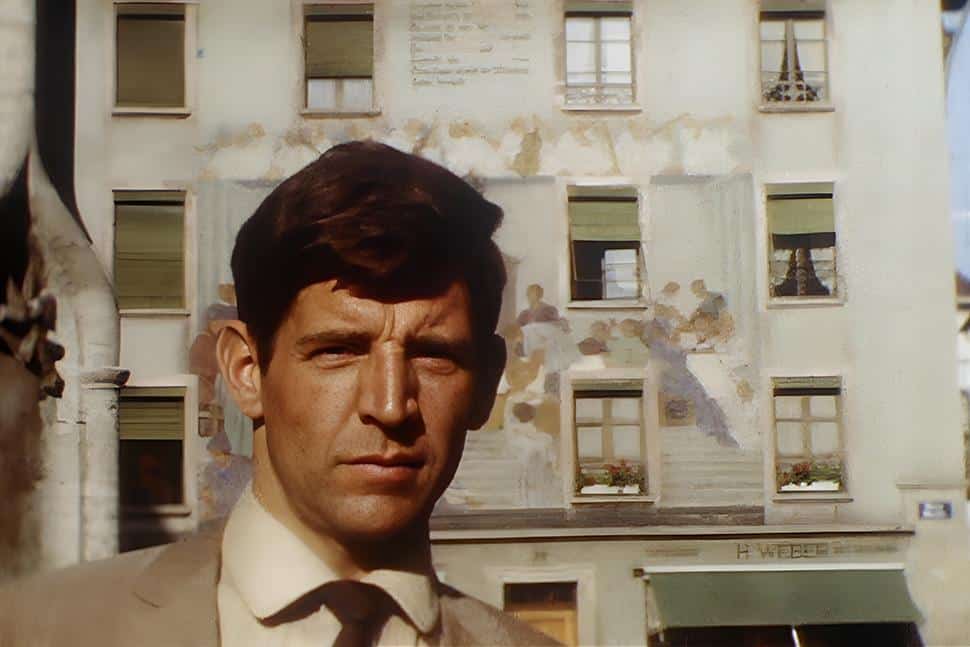




Dir: Jack Archer | UK Doc 78′
Bill Douglas (1934-91) was one of Scotland’s greatest filmmakers. And no one knew him better than his companion and collaborator Peter Jewell who captures the essence of an auteur in the mould of Chris Marker or even Terence Davies in this affectionate portrait.
Directed and written by Jack Archer, Bill Dougles – My Best Friend is a documentary about a distinctive creative talent and a lifelong platonic relationship. Jewell serves as the narrator and the affable on-screen presence reminiscing over Douglas’ long career, and their life together. It was a friendship that could almost be described as love, although Jewell never actually declares it as such. And although girlfriends intervened over the years they never prized the two men apart.
Douglas was born in 1934 in the run-down mining village of Newcraighall, Scotland, where he lived with his grandmother having been abandoned by his father. Peter Jewell came on the scene in the early 1950s and the two struck up a lively friendship – Douglas always immaculately turned out in contrast to the scruffy middle class Peter, but they bonded over their love of film, a medium that allowed Douglas to escape his traumatic childhood. Soon Bill had moved in with the Jewell family in their large house in Barnstable, on the Jurassic Coast, at a time where there were still German prisoners of war stationed there, waiting to be repatriated.
The two men then gradually drifted to London, ample black and white footage showing the war-torn city of the era. Renting a small place in Soho they remained oblivious to the fleshpots so engrossed were they in making home movies which they claimed ‘were all rubbish’. It was a friendly creative neighbourhood and this is how their filmmaking started. Fever was a first film, a drama with its allusion to mental illness at a time of much social unrest, and a prescient fear of a nuclear Holocaust. Globe and Striptease were other short films the two cut their teeth on. Come Dancing followed in 1971. Rather like Terence Davies, Bill also made a trilogy about his tragic life entitled, My Childhood (1972). It was a film that showcased the poverty of his growing up, and went on to win the Best Debut film at Venice Film Festival.
The number three would continue to feature prominently in the Douglas oeuvre, and locks were also a ‘thing’: Bill was obsessed by locks and entrances. Determined to control every aspect of the filmmaking process, Douglas gradually emerges a Chekovian figure who knew each of his scripts word by word, line by line. A favourite drama of the era was Michel Audy’s film La Maree, that invoked a knife as a symbol of sexual fear, and the two of them watched it over and over again. For Douglas filmmaking was a constant attempt to understand his life, and montage became more and more important enabling him to visualise his feelings and ideas because he found verbal expression difficult.
Bill Douglas was certainly a “filmmakers’ filmmaker”, and an inspiration for many who follow in his wake including Lenny Abrahamson and Lynne Ramsay who share their thoughts to the camera. But Douglas was criminally overlooked commercially.
Director Jack Archer deliberately chose to put Peter at the centre of his film due to his influence on Douglas. Today Bill remains a huge part of his life even thirty years after his death. As Peter himself says, “Art is the only immortality”. MT
PREMIERED AT VENICE FILM FESTIVAL 2023